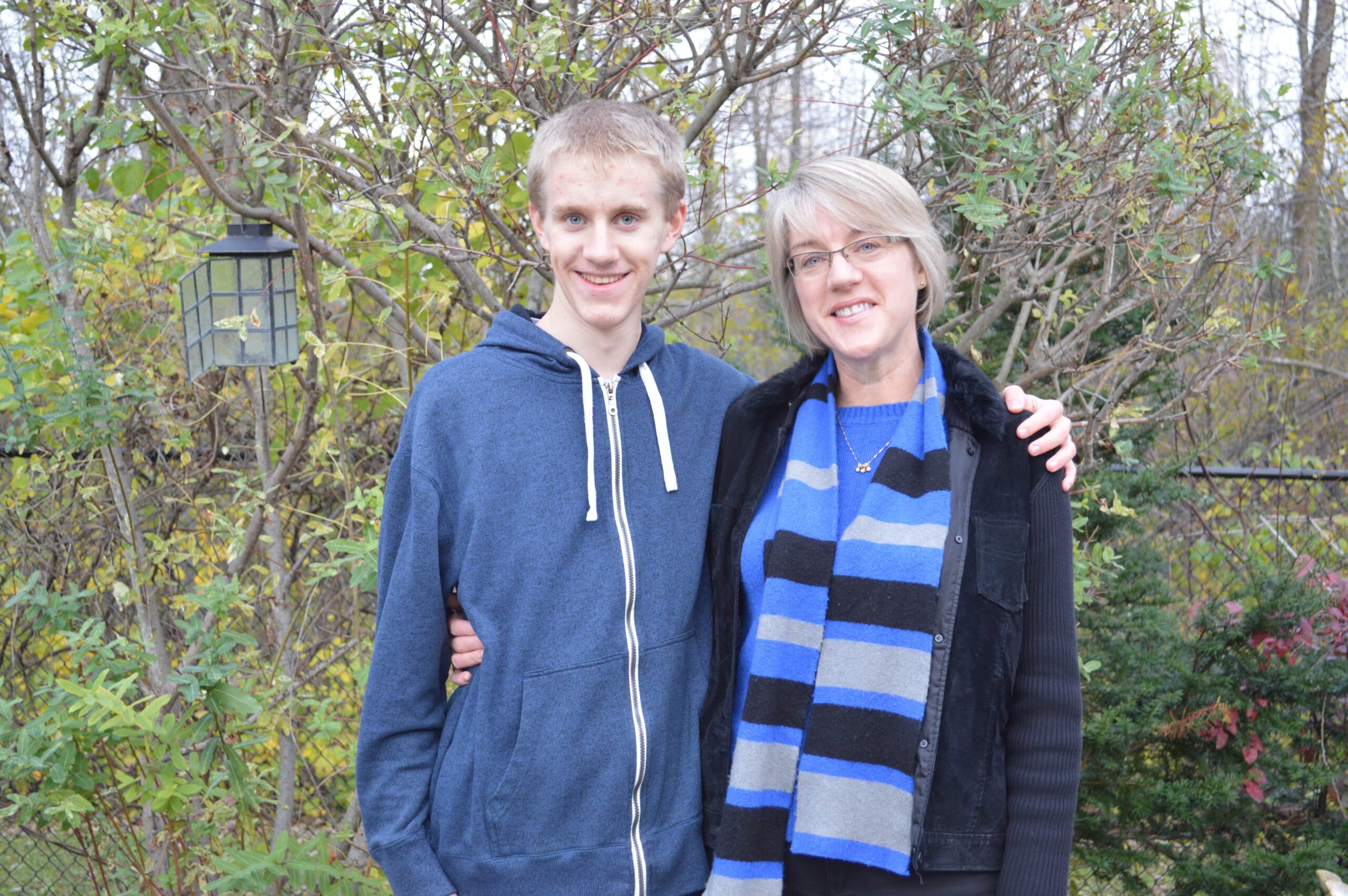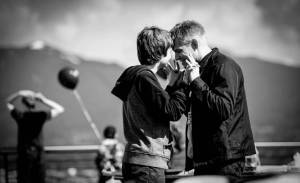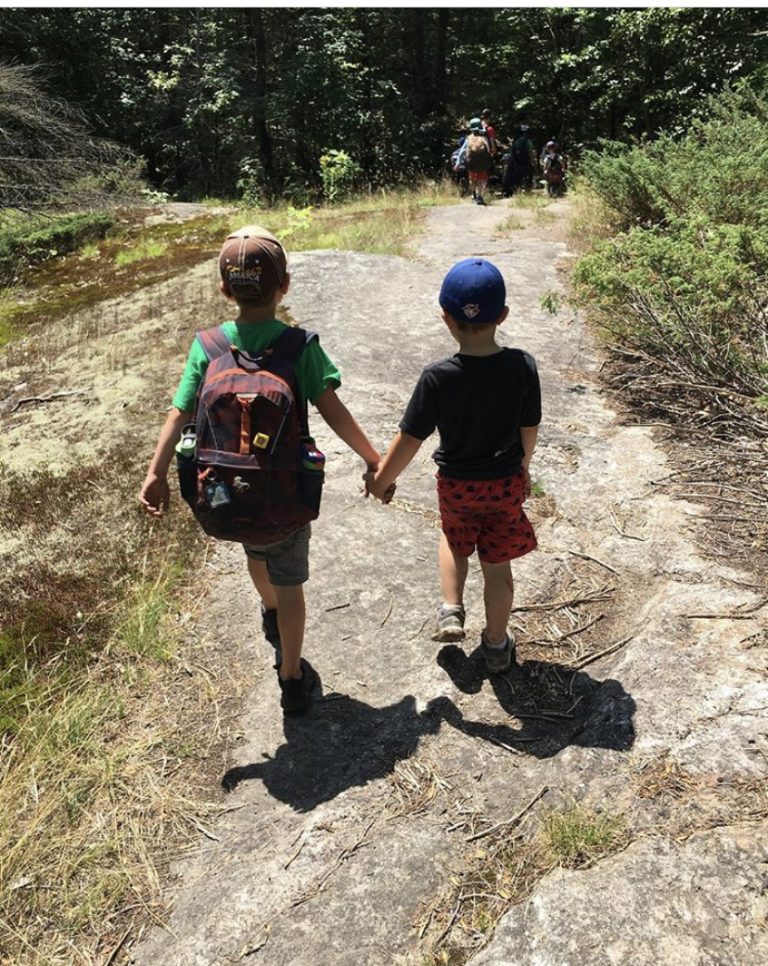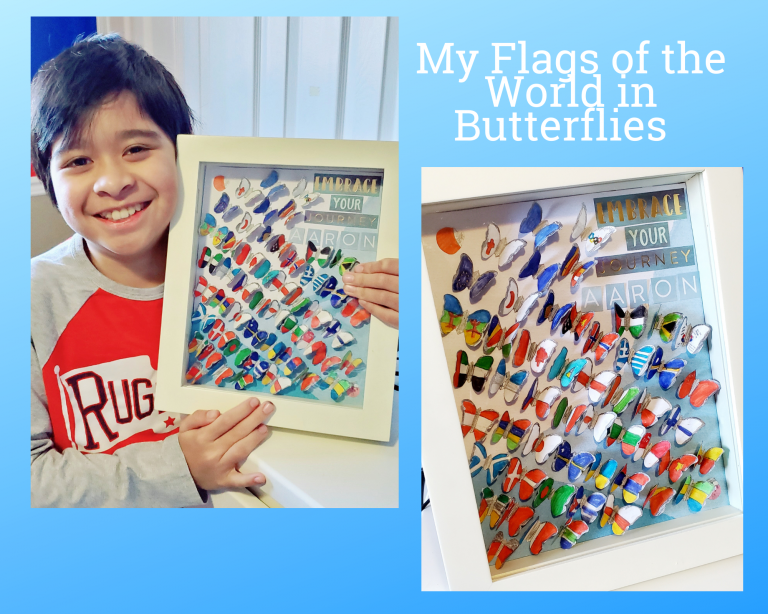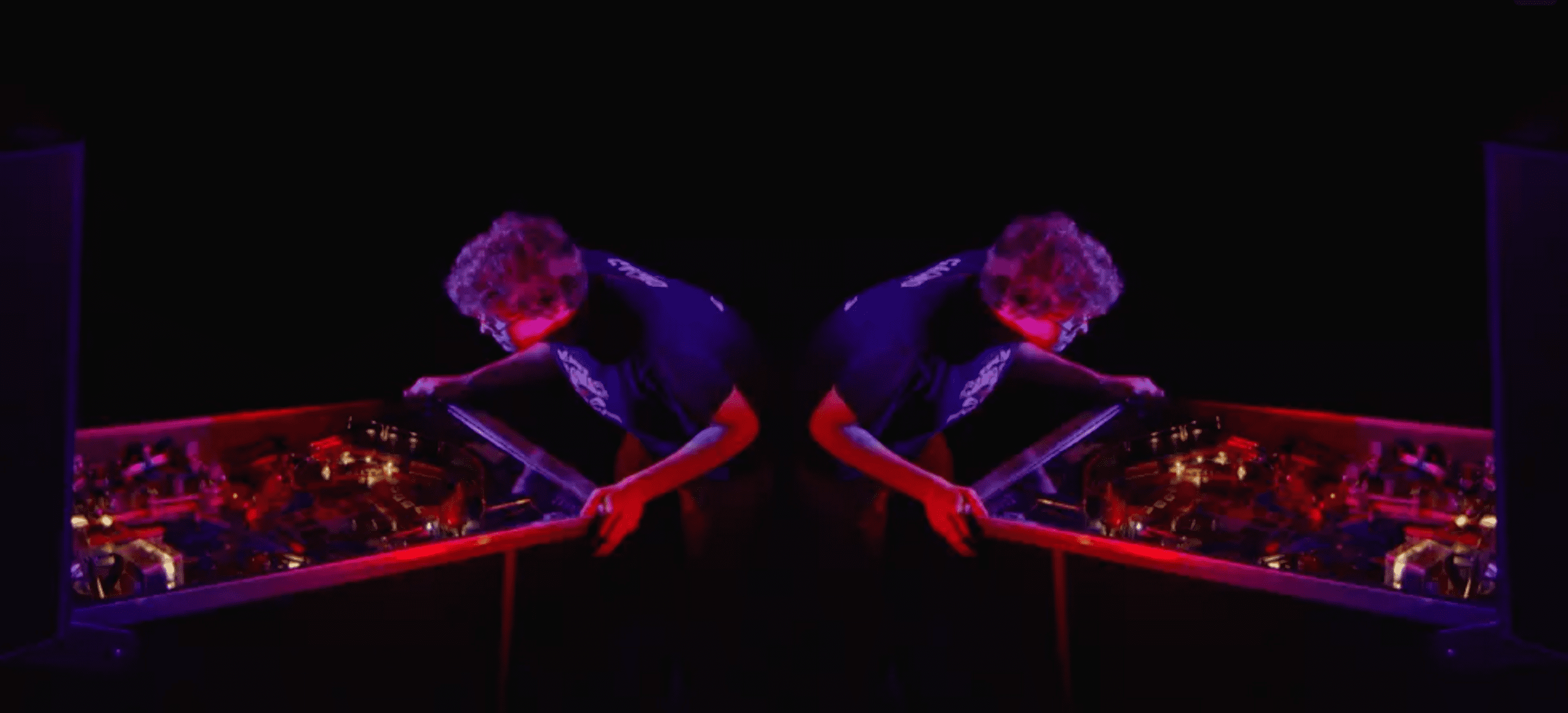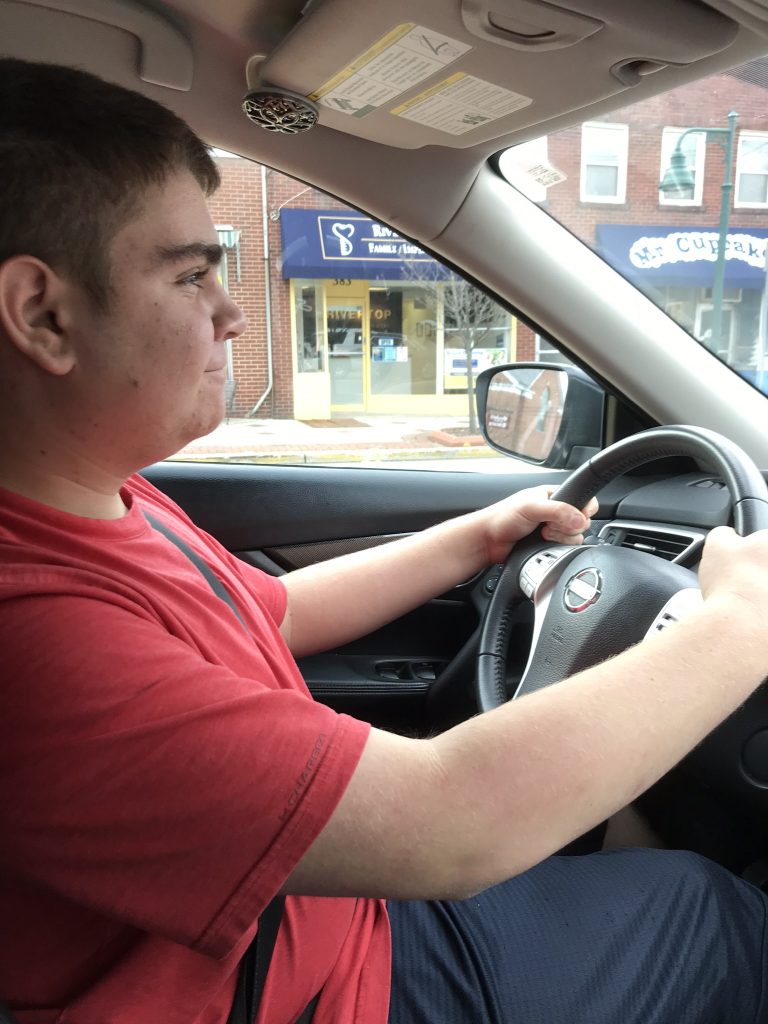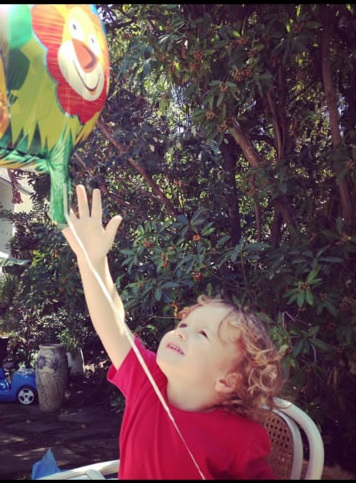The Sun in Our Sons
~Illuminating, Celebrating and Cultivating the Good in Autism~
“That the powerful play goes on, and you may contribute a verse. What will your verse be?” 1.
We Just Need to Take the Time to Look
The Honourable Mike Lake’s Statement on World Autism Awareness Day, April 2, 2014:
“Mr. Speaker, today is World Autism Awareness Day, and now 16 years since my big little boy Jaden was diagnosed with autism.
Having turned 18 in November, Jaden the adult is very much like the Jaden we have known from childhood—nonverbal and almost inconceivably innocent. For those who don’t know him, Jaden is easy to underestimate. Yet, for those who invest the time to get to know him, Jaden’s upside is immeasurable.
He is the friend who always believes the best about you, the worker who never wants his shift to end, and the student who makes all of the others better people. He is the brother who loves his sister and is not afraid to show it, and the son who every single day reminds his parents that there is incredible joy to be discovered in even life’s most difficult circumstances.
Make no mistake; autism comes with profound challenges for individuals and families, too many to articulate in just 60 seconds, but Mr. Speaker, as we earnestly work to address those challenges, our country will unearth a treasure of previously undiscovered unique talents and abilities. We just need to take the time to look for them.”2.
Our Sons Do Not Judge
“Jaden doesn’t judge.”
Jaden’s dad and I were chatting about our sons, about their humility and their astonishing, often mysterious abilities. But we kept returning to the quiet truths, about all that each of us aspire to be, every day, and all that our sons naturally possess. They are humble, honest and entirely non-judgmental. I have many autism conversations, but this one was clearly different: Jaden’s dad saw the good. He chose to describe his son according to what he can do and the person Jaden is. Yes, he acknowledged the obstacles, the strain, the concern, the anxiety, the frustrations and the gnawing worry we parents absorb supporting our children with autism. But he chose the glass half full.
“Erik doesn’t judge either,” I said quietly.
But that’s just the tip of the iceberg.
When we stopped to take stock, the positive attributes came tumbling out, and so, too, did the realization that Erik and Jaden and others with autism appear to embody remarkable traits in their purest form. We did not have to teach our sons these things. They, in fact, taught us. It is almost as though these children have been sent to us to guide us along, to teach us what really matters and to nudge us into a better place and space.
Our sons work hard without expectation of reward or recognition. I can’t and won’t do that. Erik will rake leaves until it is too dark to see; he craves order, and if creating endless leaf piles is what it takes, he’ll do it without being asked and without anticipation of a pat on the back. There is no expectation whatsoever.
Our sons are non-materialistic. When asked what he thought he might like for his birthday, Erik admitted to not really knowing. “But that’s OK,” he smiled shyly, “I’ll just use what I already have.”
Our sons appear to exist without a trace of ego, and they want – really want – others around them to succeed. They do not tear strips off of others to embellish their sense of self. There is no ego boosting whatsoever. How extraordinary in today’s me-driven world.
Erik performs random acts of kindness all the time – emptying garbages, hand-vacuuming dusty corners and shuttling laundry from floor to floor – and he never breathes a word about it. That is altruism in its purest form. I try but I continually fail. I want someone to know what I have done, and that is not altruism. So, we neurotypicals try, we really do, but we come up short. We cannot sustain this purity. We struggle and claw toward it while our sons and daughters with autism are imbued with this radiance. Maybe, just maybe, we need to pay more attention to the sunlight.
Maybe in looking at the deficits so fiercely and so judgmentally, we’ve got this partially wrong. Perhaps we are missing the take-away points. When I reframe my view, I see my son and those with autism entirely differently. It’s not about them, after all; it’s about us and the way we choose to frame autism. Autism is not the obstacle: the barrier to acceptance and to appreciation is neurotypical judgment. When we lay judgment aside and dare to embrace – and not erase – differences, our lives become richer. And for that, we all become more layered and infinitely more attractive.
“And this is a disability?” I asked Mike, eyebrows raised. We both smiled, and paused, anticipating the day when others see in our sons what we already see, so very clearly. We see the sun in our sons.
I came home after that discussion, and I started to make yet another list. I wanted to get it all down – the sun – and be ready when I needed to pull it out and illuminate the good.
Speaking Points: Autism the Good
“Mom, some guys at school today were talking about autism. What they were saying was all pretty negative. That bugged me.”
My eldest son, Scott, was in the kitchen after school, emptying his lunch kit and recapping his day through slivers of conversation. He paused, pensive.
“But what bothered me most was that I really wanted to say something – to defend Erik – but I didn’t know what to say. I couldn’t find the right words.”
“We need to take the people to the treasure, then, Scott. We need to shine the light on the good. But first, you need some speaking points. Interesting, isn’t it, how we can all talk about what is wrong with people with autism. We can rattle off the list – the social struggles, the communication challenges , the sensory bit, the repetitive part and the intense focus areas. That stuff we all know. Why is it we can’t find words for the good? It’s time that we take stock and speak up about all that is right with autism.”
Take the People to the Treasure
Let’s take a moment to hoist the treasure chest into the light and lift the lid. What’s inside? Come close and take a look.
See the extraordinary abilities – some savant and others keenly honed. Can you memorize a 100-page photo book? Make a mind map of an entire library? Know where you are in any given town or city with GPS-like accuracy? No, me neither.
Take a look in that corner of the treasure chest. It’s where the utterly unique perspective lies, quietly waiting to unleash a fresh view of the world. Have you ever considered objects and their shadows? Spent an hour watching aircraft take off and land? Felt joy in random people encounters? Devoted hours to reviewing life through pictures and video? We have. Our children with autism take us there daily. Without them, we would be walking through this world blandly. With them, we are not.
Our ASD children wake us up to life.
And ah, those pure attributes – the quiet truths. They fill the remainder of the treasure chest, and they are pristine in form and hesitant in nature. They don’t jump out at you. They are there, but you need to look for them because autism does not flaunt. It simply is. Truth, honesty, originality, selflessness, unabashed affection, curiosity, dependability, mindfulness, loyalty, appreciation, altruism, frugality, modesty, reliability, kindness…all bundled in a non-judgmental, non-materialistic package.
A speech-pathologist friend of mine summed up beautifully when she said to me, “People with autism are authentic.”3. Ours to discover, indeed, and ours to learn from, should we choose.
Who Benefits?
Why do it? Why peek in and illuminate the good in what is otherwise perceived as a pervasively bleak disorder?
As parents, we simply cannot not see the light. Our children depend on us to see the good, to nurture their sense of self and to feed their self-esteem. To feel appreciated, worthy, valued and supported are basic human needs. We all crave and need this feedback. Our internal narrative drives our thoughts and actions, and the way that narrative is framed – positively or negatively – depends upon input from those around us. Could you imagine being held up – daily – and judged and scrutinized on the basis of what you are not? No, neither can I. So while I work hard to help my son understand and manage his challenges, I choose to address self-esteem proactively and illuminate the good. If it were about me, I would want it no other way.
Quite simply, you project what you get and you get what you project. Cultivating a positive loop for our children is essential. Kim Barthel, in Conversations With a Rattlesnake, explains: “This positivity…is an attitude of grace that values you even though you have faults and shortcomings. When you think of yourself negatively, your brain develops a hard drive that makes you see the world through that negative mindset. When someone comes along and sees you through relentlessly positive eyes, it begins to show you a different way to think. As you change your thinking, so will your brain change.”4.
To be clear, this is not about denying the struggles. Rather, this is all about recognizing and celebrating the good and addressing challenges through positive channels. Ultimately, this is about creating a positive foundation and “…put(ting) someone together before we take them apart.”5.
Kristine Barnett, author of The Spark, recognizes the power of positive thought: “Why is it all about what these kids can’t do? Why isn’t anyone looking more closely at what they can do?”6.
Latin poet Publius Vergilius Maro, known in English as Virgil, summed up nicely and simply: “They can because they think they can.”’7. A modern corollary? They can because they were told they could. Belief, worth and value. It is in all of us to give.
And it is about us, too. As parents, we need to move outside of the diagnosis, beyond what Kristine Barnett calls “the relentless grey rain”8. We need to step into the light. For our own strength and well being, we need to maintain perspective, and we must balance the to do with the to celebrate. Autism the Good is our oxygen mask. We need to adjust our own mask before we can help our children with theirs.
Illuminating the good injects worth and belief into autism. This translates into faith and conviction. Our children’s educators need to believe in those they serve in order to be effective. When teachers move beyond the diagnostic deficits and plan from a positive perspective, they are more apt to tap into potential, and we all win.
Let’s return to the speaking points. Taking time to take stock and articulate all that is good about autism empowers all of us in our role as autism ambassadors. As parents, family members and friends, we want to acknowledge the strengths and illuminate the other side of autism. We just need to be shown the treasure and given the words to do so.
And there’s the word autism itself. It’s Greek, of course, derived from the root autos, meaning self. Why we persist in spotlighting only the isolated self is puzzling. Why have we tarnished, indeed stigmatized, the term? What about the other side of self? The selfless self? Why do we choose not to shine the light there? Those who see the glow do just that, and in so doing, we all do our part in polishing the term. We paint a brighter portrait and we leave autism a little better than we found it. For those whose identities are shaped by the brush strokes, that is a very good thing.
Moving Beyond Awareness and Acceptance: Autism Appreciation
Numbers are increasing. We hear a lot about building autism awareness and autism acceptance, and that is all good, but without the appreciation piece, the sense is that we tolerate the condition at best. Add in the appreciation piece and there is a shift – from acceptance and tolerance – to valuing those with autism and what they have to contribute. And this is significant. This is all about reframing the concept and reshaping the connotations around the word. This is about building a foundation for support based upon worth, and that is a shift in the right direction from purely awareness and acceptance. This is about moving beyond the deficit bias and adding another – positive – layer. It is indeed the missing leg on the stool. Once in place, autism is more balanced and objective – deservedly so.
Yours To Discover
So, we’ve got a handle on the treasure – the startling abilities, the fresh perspective and the pure attributes. That’s the what. We understand the so what – the whys behind seeing and promoting the glass half full. The last component is the now what; how, indeed, do we take this forward?
With speaking points in hand and an open mind, I venture forth and allow autism to be my guide. I help to spread the good word about autism, yes, but even more pleasing, is going beyond and stepping into the perspective. Once there, I make a point of letting Erik know – daily – that I both enjoy and appreciate the view from his shoes. I make sure he knows that I learn from him – and exactly what it is that I learn: humility, unconditional acceptance, keen observation, perseverance, and on goes the list. And I remind him, often, just how far he – indeed, we – have come.
Most importantly, we take the time to look. We talk about autism the good and we revel in the treasure, for treasure has value only when it is indeed, treasured. Here is some of what we have discovered on our journey.
Taking the Time to Look: “I Love This Chaos All Around Me!”
I invite myself to walk in Erik’s shoes each day. I try on the unique cloak that is Erik, and I allow myself to linger in these moments, pausing to notice. I keep my ear out for random music bites as cars pass by; I delight in light patterns and unexpected shadows, in churning colours and in the kaleidoscope of faces that pass my way.
This brings to mind a trip to Times Square, New York. I was concerned that the din and crushing crowds and the commotion would be too much for Erik. Instead, he turned to me, grinning broadly and shouted, “I love this chaos all around me!” Erik loves random – encounters, sounds, smells, you name it – and this was about as wild and comedic as it gets. Mirroring him, I looked out and reframed the square, drinking in the swirls and the eccentricity of the moment. It was good to be Erik.
I also aim to be more mindful, savouring the moment through non-judgmental eyes and taking things in through each sense, allowing my grocery list and to dos to fade. I become Erik, and I feel keen and sharp and fresh. There is nothing like stepping into the skin of another to appreciate what lies waiting. Again, it brings to mind our Ontario license plate: “Yours to Discover”. Autism: Ours to discover. Ours to appreciate. Ours to cultivate.
Footnotes:
1. Dead Poets’ Society, John Keating quoting Walt Whitman
2. The Hon. Mike Lake’s Statement on World Autism Awareness Day; April 2, 2014
3. Sarah Holliday; Speech-Language Pathologist; Greenbrier County Schools; WV, USA
4. Kim Barthel, Theo Fleury: Conversations With a Rattlesnake; 2014; p. 118
5. Kim Barthel, Theo Fleury: Conversations With a Rattlesnake; 2014; p. 132
6. Kristine Barnett; The Spark; 2013; p. 56
7. Publius Vergilius Maro, Virgil: October 15, 70 BC – September 21, 19 BC
8. Kristine Barnett; The Spark; 2013; p. 94
By Teresa from Manotick

